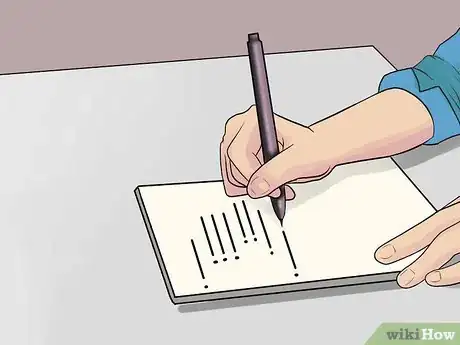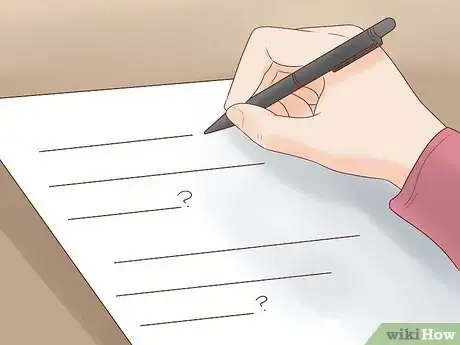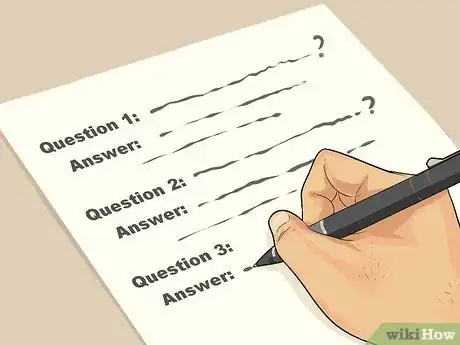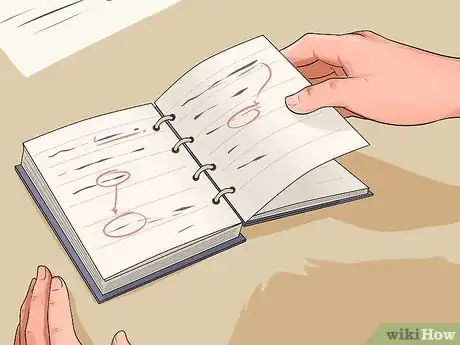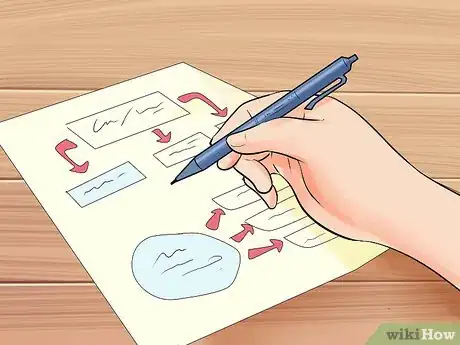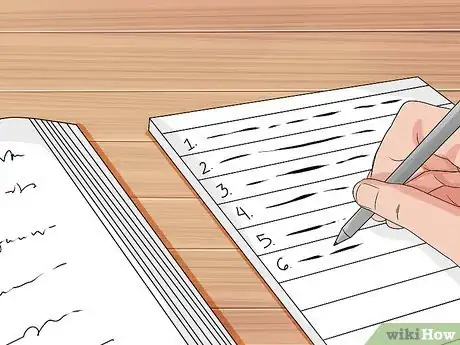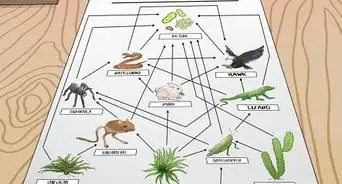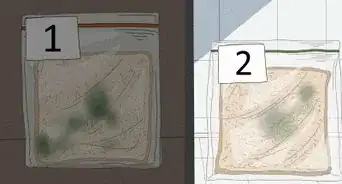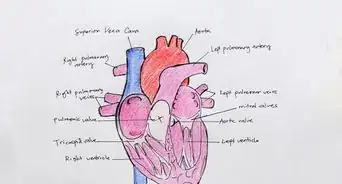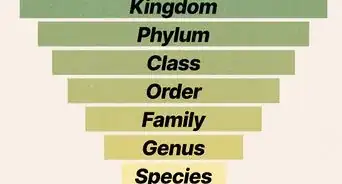This article was co-authored by Alexander Ruiz, M.Ed.. Alexander Ruiz is an Educational Consultant and the Educational Director of Link Educational Institute, a tutoring business based in Claremont, California that provides customizable educational plans, subject and test prep tutoring, and college application consulting. With over a decade and a half of experience in the education industry, Alexander coaches students to increase their self-awareness and emotional intelligence while achieving skills and the goal of achieving skills and higher education. He holds a BA in Psychology from Florida International University and an MA in Education from Georgia Southern University.
This article has been viewed 24,799 times.
Do you ever struggle to find a way to organize your notes in Biology class? Sometimes Bio can be tricky, but taking clear notes can make studying and learning new material very simple!
Steps
Taking Notes from a Reading
-
1Use clear titles. When taking notes from a reading, title your notes with a clear and relevant title that will allow your to quickly identify them later.
-
2Add key concepts to your notes. Some textbooks have key concepts or questions and answers that you can write at the top of your notes. If not, after completing the assigned reading, write a quick summary of the new material in your own words. This allows you to get a better understanding of new concepts.Advertisement
-
3Connect facts with labels. When you get into the bulk of the material, it is important to label each section/different part. With each new fact within these sections, use bullet points to make your notes more concise and understandable.
-
4Use definitions. In biology, there are many new terms introduced--it is important to define all new terms introduced. Some like to keep a special section of their notes from each reading reserved for these new terms and their definitions. This is very helpful for quick studying!
-
5Quiz yourself. Make sure that you understand the material. Summarize the new ideas and the basic concepts learned in the reading in your own words. This helps you gain a better understanding of the material.
-
6Revise. To learn this material well, it is important to review your reading notes frequently!
Taking Notes from a Lecture or Lesson
-
1Take clear notes during the lecture or lesson. This can be a little bit more tricky than taking notes from a reading, but the idea is similar. It is crucial, however, that you both listen to your teacher, and take clear notes for yourself.
- Ask your teacher if you can record the class. This way, you can play back the recording at home and add to your notes on your own time.[1]
-
2Label your notes with the date and a clear title, which will make them easy to find later.
-
3Listen to what your teacher says, and summarize the basic idea of the discussion. Again, use bullet points for more concise notes, and make sure to define any new topics introduced.
-
4Use visual aids. If your teacher describes a certain process, or shows a diagram, it is helpful to draw or describe this in your notes. This allows you to get a better grasp on certain concepts.
-
5Summarize. To ensure that you fully understand the material, you can recopy your notes or summarize them in your own words.[2]
Expert Q&A
-
QuestionHow do you read a science textbook effectively?
 Alexander Ruiz, M.Ed.Alexander Ruiz is an Educational Consultant and the Educational Director of Link Educational Institute, a tutoring business based in Claremont, California that provides customizable educational plans, subject and test prep tutoring, and college application consulting. With over a decade and a half of experience in the education industry, Alexander coaches students to increase their self-awareness and emotional intelligence while achieving skills and the goal of achieving skills and higher education. He holds a BA in Psychology from Florida International University and an MA in Education from Georgia Southern University.
Alexander Ruiz, M.Ed.Alexander Ruiz is an Educational Consultant and the Educational Director of Link Educational Institute, a tutoring business based in Claremont, California that provides customizable educational plans, subject and test prep tutoring, and college application consulting. With over a decade and a half of experience in the education industry, Alexander coaches students to increase their self-awareness and emotional intelligence while achieving skills and the goal of achieving skills and higher education. He holds a BA in Psychology from Florida International University and an MA in Education from Georgia Southern University.
Educational Consultant Place sticky notes next to the most important sections. This way, you'll have an easy time flipping back to those passages in the future.
Place sticky notes next to the most important sections. This way, you'll have an easy time flipping back to those passages in the future. -
QuestionHow do you get through biology class with ADD?
 Alexander Ruiz, M.Ed.Alexander Ruiz is an Educational Consultant and the Educational Director of Link Educational Institute, a tutoring business based in Claremont, California that provides customizable educational plans, subject and test prep tutoring, and college application consulting. With over a decade and a half of experience in the education industry, Alexander coaches students to increase their self-awareness and emotional intelligence while achieving skills and the goal of achieving skills and higher education. He holds a BA in Psychology from Florida International University and an MA in Education from Georgia Southern University.
Alexander Ruiz, M.Ed.Alexander Ruiz is an Educational Consultant and the Educational Director of Link Educational Institute, a tutoring business based in Claremont, California that provides customizable educational plans, subject and test prep tutoring, and college application consulting. With over a decade and a half of experience in the education industry, Alexander coaches students to increase their self-awareness and emotional intelligence while achieving skills and the goal of achieving skills and higher education. He holds a BA in Psychology from Florida International University and an MA in Education from Georgia Southern University.
Educational Consultant Try taping your notes with a voice recorder. Take the best notes that you can in class, and then write down anything you missed later on. Before the tests, listen to the lecture recordings while reading over your notes.
Try taping your notes with a voice recorder. Take the best notes that you can in class, and then write down anything you missed later on. Before the tests, listen to the lecture recordings while reading over your notes. -
QuestionCan I draw pictures about the topic in my biology notes?
 HannahCommunity AnswerSure! Often, sketches are important to understanding a topic thoroughly. For example, if you learn about cell organelles, it's necessary to draw a simplified cell and label each part. Try to make space for the picture, so it doesn't mess up your structure.
HannahCommunity AnswerSure! Often, sketches are important to understanding a topic thoroughly. For example, if you learn about cell organelles, it's necessary to draw a simplified cell and label each part. Try to make space for the picture, so it doesn't mess up your structure.
